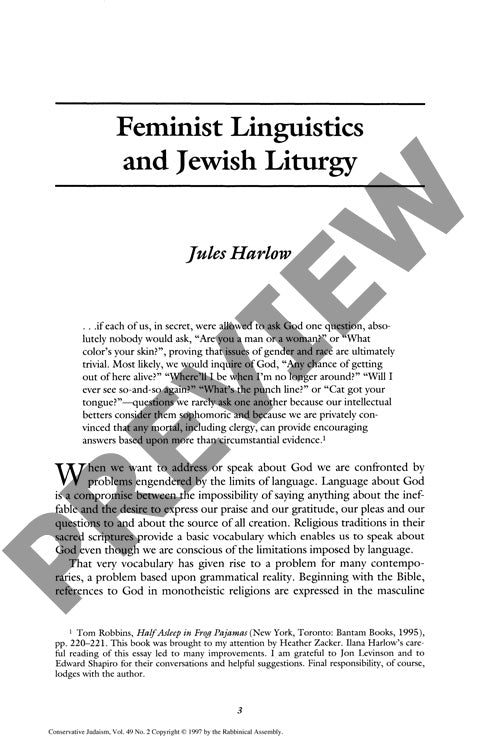Feminist Linguistics and Jewish Liturgy
Couldn't load pickup availability
When traditional Jewish prayers call God "He," how can feminist values be honored without compromising centuries of sacred text? This tension between gender inclusivity and liturgical authenticity has sparked intense debate across Jewish movements, from Orthodox to Reform. Through comparative analysis of traditional Hebrew sources and modern adaptations in contemporary prayerbooks, this research reveals how different Jewish communities navigate changes to pronouns, divine names, and blessing formulas. While some congregations embrace gender-neutral language and feminine divine imagery, these modifications often create problematic gaps between Hebrew originals and English translations. Analysis of Reform, Conservative, Reconstructionist, and Orthodox approaches demonstrates that attempts to address gender bias through liturgical revision may paradoxically undermine the very unity these sacred texts have historically fostered among Jewish communities worldwide. Though gender-inclusive language aims to create more welcoming prayer spaces, such changes risk alienating traditional practitioners and fragmenting communal worship experiences. The findings suggest that while feminist linguistic concerns reflect valid social justice imperatives, preserving the integrity of biblical and rabbinic textual traditions may be equally crucial for maintaining Jewish continuity across time and geography.

More Information
-
Physical Description
-
Publication Information
Published 1997
ISBN
-
Publication Credits
Jules Harlow

